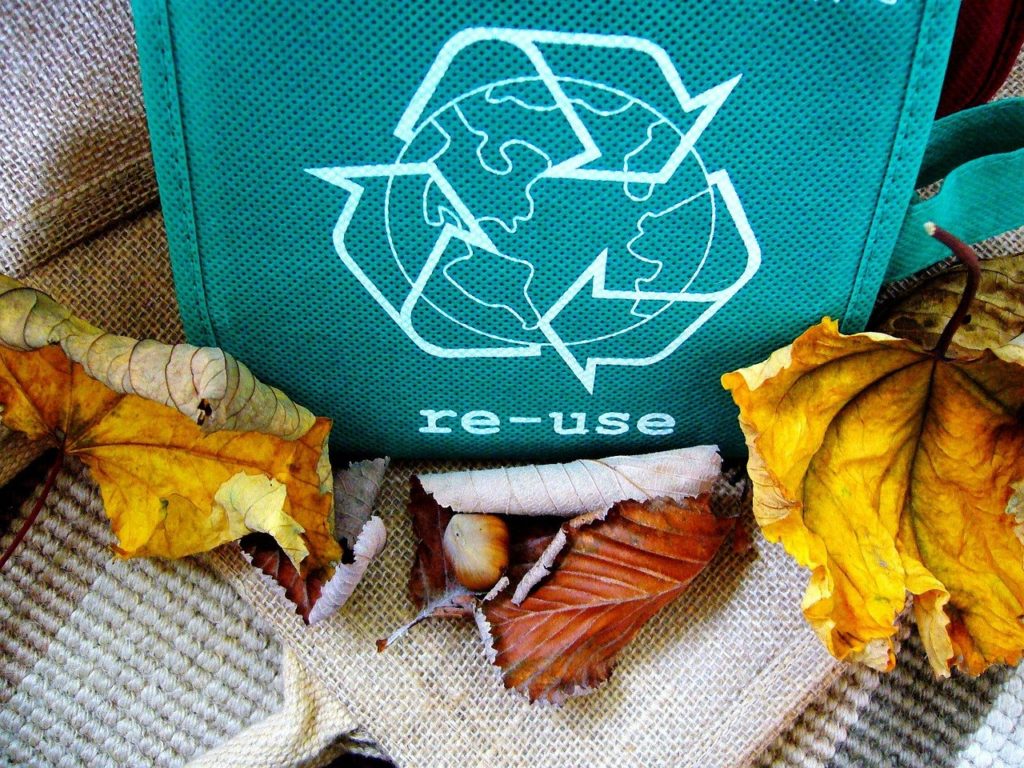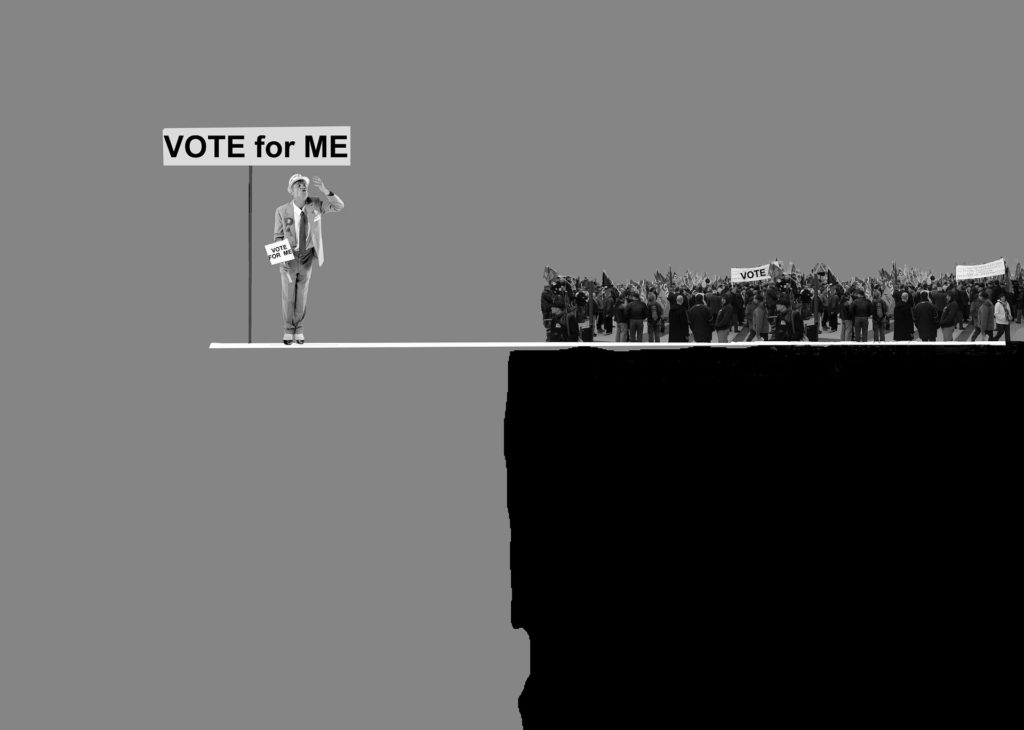All Birkbeck’s REF 2021 impact case studies in business and management were rated ‘world leading’ or ‘internationally excellent’. Discover our research case studies below. Full details can be found on the REF website.

Reforming governance in the UK non-profit sport sector
Following a series of scandals in the UK sports sector, research completed since 2011 by Birkbeck’s Richard Tacon and Geoff Walters has shaped significant reforms to the country’s sports governance landscape.
In particular, their work underpins the Voluntary Code for Good Governance, published by the Sports and Recreation Alliance in 2011 and revised in 2014; and through this, the Code for Sports Governance introduced at the recommendation of the UK government by Sport England and UK Sport in 2016. All sports organisations applying for UK government funding must comply with this code, which has therefore not only influenced the distribution of over £500 million between 2016 and 2022, but has also brought about significant change in individual organisations, who have reformed their governance procedures in order to comply with this essential requirement.
Numerous smaller, unfunded organisations have additionally signed up to the Sport and Recreation Alliance’s Principles of Good Governance, a voluntary code which is also based on Tacon and Walters’ research. Across the sector, governing boards are now better managed and more diverse. As such, this research can be seen to have shaped the entire UK sport sector and affected the lives and playing experiences of the millions of Britons who participate in organised sport each year.
Mobilizing the power of trade unions
John Kelly’s mobilization theory, first proposed in Rethinking Industrial Relations (1998) but refined and developed over the two decades since, offers an account of the conditions under which individual employees collectivise in response to problems at work (a sense of grievance, shared with fellow workers; a target to whom blame can be attached; and a belief that there are forms of collective action that will make a difference). The theory was taken up rapidly by trade union activists and has been widely used in trade union education programmes since 2004. In the period since 2014, major unions with a combined membership of over six million workers have drawn on Kelly’s work to educate union organisers and to inform the development of major campaigns.
In particular, Kelly ran and designed the ‘Leading Change’ programme for the Trades Union Congress (TUC), which ran between 2004 and 2018 and whose participants have gone on to become MPs, union general secretaries, and in one case the General Secretary of the Labour Party. Kelly’s work also underpins training programmes for the Public and Commercial Services Union, Universities and Colleges Union, and the NEU (National Education Union).
Kelly’s influence matters because unionized workplaces provide better terms and conditions, on average, than their non-union counterparts. The aggregated figures from the unions with which Kelly and his work have been associated tell us that between 2014 and 2020, millions of employees at thousands of workplaces received higher pay, longer holidays and better fringe benefits such as sick pay. Moreover, the achievement of collective bargaining over terms and conditions of employment means that these newly unionized workers now have more say in workplace decisions than would otherwise have been the case.
Don’t Fix It! Fighting match-fixing in European football
Match-fixing is a problem for professional sports because a perception of unfairness makes them less attractive to spectators, and because of the harm done to players (typically those who are younger, vulnerable, and less well-paid) who may be groomed or blackmailed into participating. It is also a wider social issue because match-fixing is typically orchestrated by criminal groups in order to fund their other activities. After a set of 2011-12 survey results revealed a worrying prevalence of match-fixing in the Eastern European football leagues in particular, Birkbeck researchers Sean Hamil, Andy Harvey, and Haim Levi were recruited in 2013-14 by FIFPro, the global football players’ union, to conduct research into football match fixing. Their work on the Don’t Fix It! project surveyed footballers from eight European countries and formed the basis for a code of conduct adopted by every key stakeholder organisation in European football, as well as a training programme that saw national associations develop and deliver anti-match-fixing initiatives in each of the countries concerned.
Don’t Fix It! also underpinned the development of the Red Button App for anonymously reporting match-fixing. Harvey and Hamil’s research identified the lack of a clear reporting avenue as a key impediment to reducing match-fixing and it is this that the app addresses. First developed with the Finnish football players’ union, this has now been adopted worldwide, with both FIFA and UEFA agreeing to recognise the app as a valid avenue for match-fixing reports. Another European project has seen the app expanded into sports beyond football, protecting both players and the sports they play.
Developing a co-creation model for innovation in the UK and EU
Working with major policy institutions such as the Big Innovation Centre, Innovate UK, the UK Intellectual Property Office, and the European Commission, Birkbeck researchers Brigitte Andersen, Federica Rossi, and Muthu De Silva have reshaped national and international approaches to the ways in which businesses and universities can best work together. Their research on knowledge co-creation has been a catalyst for major policy reform in the UK and EU. Andersen’s work as rapporteur for a 2012 European Commission expert group on open innovation fed directly into the delivery framework for the EU’s €80 billion Horizon 2020 programme, which has supported countless researchers and research projects across the continent. De Silva’s work with the Intellectual Property Office supported changes to the Lambert Toolkit, which is used by universities to set the terms for their engagement with business. Andersen and De Silva’s collaboration with HEFCE through the Big Innovation Centre (of which Andersen is CEO) helped to ensure the introduction of impact criteria into REF 2014, reforming the impact landscape in UKHE. And the Catapult to Success report, published in 2013, underpinned the development of the UK’s Catapult Centres and the distribution of over £1 billion in government funding.
Making assessment centres work for employers
The assessment centre process, in which candidates for a role or promotion are asked to perform a series of tasks under observation and evaluated on their performance, is widely used in employee selection, development, and promotion processes around the world. Work by Birkbeck researchers Duncan Jackson and Chris Dewberry has challenged received wisdom about assessment centre design, demonstrating that traditional dimension-based assessment (which seeks to measure candidates’ performance against specific skills or competencies) does not provide an accurate prediction of performance in-role. Instead, they propose a task-based model which replaces the abstract skill testing of a dimension-based assessment centre with a focus on candidate performance in specific, job-relevant tasks. This produces more consistent results which therefore allow employers to make better choices when it comes to promotion or recruitment.
Jackson and Dewberry’s work has been taken up by a variety of recruitment and HR consultants around the world, from America to Australasia to the Middle East. These consultancies have reshaped the tools they work with based on Birkbeck research and in doing so have improved their service to dozens of large-scale, multinational companies – providing economic benefits to the consultancies and their clients as well as benefiting the diverse customer-bases of these clients by ensuring that their service providers are run by the most competent candidates. Jackson and Dewberry have also worked directly with individual employers to improve their provision (including a London-based public service organisation which accounts for over 25% of the national budget for this service) and have helped to shape practice worldwide by contributing to the national and international guidance on assessment centres provided by British and international psychological societies.



